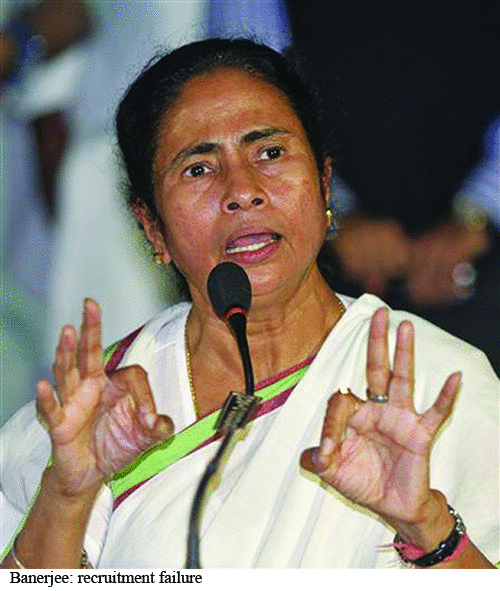 As indicated by her sweeping triumph in the state legislative assembly election of May, chief minister and leader of the ruling Trinamool Congress (TMC), Mamata Banerjee has unquestionably emerged as a mass leader of the state. Her welfare measures for the poor, including the khadyasathi (rice at Rs.2 per kg), sabujsathi (free bicycles for school-going children), konyashree (stipends for girl children from low-income households), yuvashree (unemployment allowance of Rs.1,500 per month), have benefitted a significant number of people in the state and paved the way for her return to Nabanna, Kolkata, the seat of government of West Bengal (pop. 91 million).
As indicated by her sweeping triumph in the state legislative assembly election of May, chief minister and leader of the ruling Trinamool Congress (TMC), Mamata Banerjee has unquestionably emerged as a mass leader of the state. Her welfare measures for the poor, including the khadyasathi (rice at Rs.2 per kg), sabujsathi (free bicycles for school-going children), konyashree (stipends for girl children from low-income households), yuvashree (unemployment allowance of Rs.1,500 per month), have benefitted a significant number of people in the state and paved the way for her return to Nabanna, Kolkata, the seat of government of West Bengal (pop. 91 million).
However, Kolkata’s influential bhadralok (cultured middle class), is disenchanted with Banerjee, primarily for her complete failure in implementing the promised poribartan (change) in the education sector. In particular, the total suspension of faculty recruitment during the past five years has cheesed off the educated middle class, especially youth. With murmurs of disapproval growing louder and transforming into street demonstrations, on August 5 the state government’s School Service Commission (SSC) issued a circular to all 92,000 government schools and administrative authorities to submit a complete list of headmaster vacancies by August 28.
Earlier, a report of SSC, released on July 20, had indicated that 2,500 government schools statewide have been without headmasters/principals since 2012. According to the report, apex-level vacancies have resulted in poor learning outcomes in government schools, most of which are also understaffed with 70,000 notified teacher vacancies in primaries and 18,000 in higher secondaries.
The problem of top-level vacancies in government schools is exacerbated by the reluctance of teachers-in-charge (TICs) to report headmaster vacancies, according to informed sources. With TICs also functioning as secretaries of schools and enjoying wide administrative and financial powers, they are disinclined to disturb the status quo and respond to recruitment circulars. Last month the state education ministry sent email messages to TICs warning them of possible pay-cuts for not reporting headmaster vacancies.
This excuse, which shifts the blame for top-level vacancies to TICs, doesn’t cut much ice with Swapan Mandol, assistant general secretary of the Bengal Teachers and Employees’ Association. According to him, the school education department which pays monthly salaries, is well aware of the vacancies as the pay scales of headmasters and TICs vary widely. “It’s only public pressure which has forced the state government to address this issue,” says Mandol.
According to Tulsi Masant, convenor of the DL.Ed (diploma in elementary education) Students Forum, a plethora of scams in the state government’s Teacher Eligibility Test (TET) exams during the past four years, has resulted in a freeze in teacher recruitment. After the list of successful TET candidates was allegedly tampered in 2012, and TET exam papers were repeatedly leaked in some centres in 2015, there was a flood of litigation prompting the Calcutta high court to stay the recruitment of even such candidates who had passed the exam without blemish of suspicion in 2012, and publication of the list of successful TET candidates 2015.
“In West Bengal, which suffered continuous de-industrialisation during 34 years of Communist Party of India-Marxist rule before TMC was voted to power in 2011, employment options are very few. Not only has the TMC not been able to promote industry in West Bengal, Mamata Banerjee has made a bad situation worse by neglecting resolution of the TET issue,” says Masant.
Little wonder the bhadralok, even if not recipients of the chief minister’s hand-outs, are disillusioned.
Baishali Mukherjee (Kolkata)